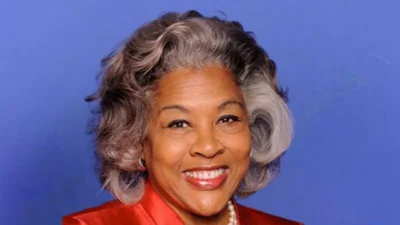Walter “Ted” Carter Jr. President at Ohio State University | Official website
Walter “Ted” Carter Jr. President at Ohio State University | Official website
Noah Dormady, associate professor in the John Glenn College of Public Affairs at The Ohio State University, has joined a research team studying resilience for minority- and women-owned small and mid-sized businesses in the U.S. and Japan.
Supported by approximately $1 million in grants from the National Science Foundation and Japanese Science and Technology Agency, the binational team brings together leading experts in hazard resilience and economics to improve understanding of how these essential businesses rebound and recover from catastrophic events.
“As someone who studies natural hazards and natural hazard economics, and as the associate editor of the Natural Hazards Review, I am intrigued by Japan, as its people have many frequent natural hazard events such as earthquakes and tsunamis and yet bounce back with a resilience that is worthy of study,” Dormady said.
Results of the research are expected to improve equity and resilience capacity-building regarding the disproportionate consequences of natural disasters on small and mid-sized businesses.
“Through our similar work studying business resilience outcomes from Hurricane Harvey and Superstorm Sandy, we found that … some businesses were hit harder than others, and some of those hit hard rebounded effectively, while others did not,” Dormady said. “I am looking forward to digging deeper to evaluate which types of businesses are hit most hard and which types of businesses have the most cost-effective resilience outcomes.”
In prior work funded by the U.S. Department of Homeland Security, the team developed methods to quantify business resilience to disruptions brought about by disasters. The new funding will enable the team to further evaluate resilience cost-effectiveness, develop greater predictive capabilities, and focus more on efficient recovery. The team aims to develop enhanced analytics that will help all businesses more cost-effectively cope with and rebound from disasters.
According to the U.S. Small Business Administration, 33.2 million small businesses represent over 99% of firms in total and provide employment for nearly half of the national workforce. When disasters strike, these businesses provide essential community support services, economic vitality, and employment stability for populations when it is needed most.
“Considerable volumes of research are devoted to studying community resilience, and we understand how vital small and mid-sized businesses are to community resilience; yet only a tiny fraction of the overall research effort is devoted to understanding the factors that drive resilience in these essential businesses,” said research team leader Alfredo Roa-Henriquez, a Glenn College doctoral graduate formerly advised by Dormady who is now an assistant professor of supply chain management at North Dakota State University.
“Even less is known about disaster recovery for minority- and women-owned operated businesses, which can be slower to recover or more likely to permanently close because of unique barriers they face such as limited access to capital, challenging labor disruptions, and business development issues,” Roa-Henriquez added.
The U.S. researchers on the project will survey businesses affected by Hurricane Ian in Florida in 2022 and analyze data to better understand how they cope with catastrophic events.
“For businesses, dynamic resilience is about optimal timing of investments in repair and reconstruction,” Dormady said.
In addition to Dormady and Roa-Henriquez, other experts on the team include Adam Rose from Sol Price School of Public Policy at USC—Dormady’s doctoral adviser—and Maria Watson from Ohio State’s urban planning program who is now an assistant professor at Shimberg Center for Housing Studies at UF.
The advantage of this international collaboration will be constructing a common U.S.-Japan business resilience analysis framework tested across different cultural contexts.
The Japanese partners come from Kyoto University’s Disaster Prevention Research Institute and Kagawa University. They will focus on labor shortages' impact on business recovery from disasters as well as analyzing businesses employing foreign guest workers.
Over two years, findings will be distributed locally through organizations like National Women’s Business Development Council; nationally via entities like National Center for Middle Market at Ohio State; plus other federal/state/local agencies & policymakers.






 Alerts Sign-up
Alerts Sign-up